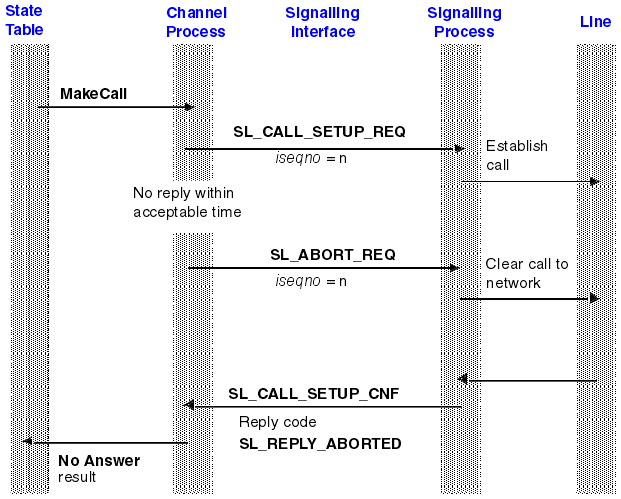At any time after a primitive is received, even after a confirm has been sent, the SL_ABORT_REQ primitive may be received. This asks the signaling process to abort processing of a specified primitive. The SL_ABORT_REQ primitive should not be replied to itself, it indicates that a reply is required for the primitive in progress. If there is a primitive outstanding that matches the SL_ABORT_REQ primitive, abort the primitive and reply with SL_REPLY_ABORT. If the outstanding primitive cannot be aborted, reply as usual when the processing completes. If there is no primitive outstanding that matches the SL_ABORT_REQ primitive, ignore the request and log an error.
The primitives involved when a call setup is successfully aborted are shown in Figure 1.
